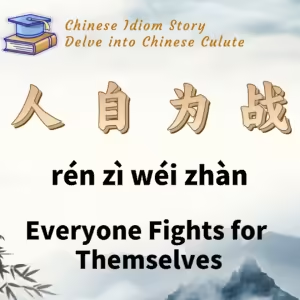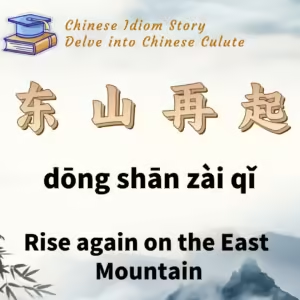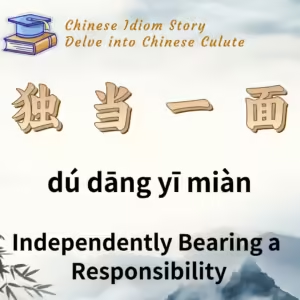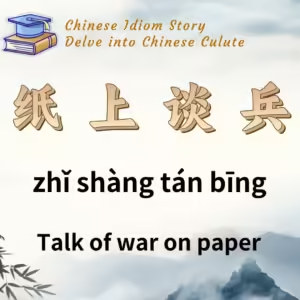
Chinese Idiom: 人自为战 (Ren Zi Wei Zhan)
English Translation: Everyone Fights for Themselves
pīn yīn: rén zì wéi zhàn
Idiom Meaning: Originally meant that everyone is ready to fight to the death, now it often means that everyone can independently handle tasks or situations.
Historical Source: Records of the Grand Historian: Biographies of the Marquis of Huaiyin (史记·淮阴侯列传)
Idiom Story: The idiom “人自为战” (Rén zì wéi zhàn) originates from a story about Han Xin, a distinguished general of the Han Dynasty. In October 204 BCE, Han Xin led his troops to a decisive victory against Zhao Wang Xie and his 200,000-strong army at Jingxing Pass. Han Xin’s tactical brilliance not only annihilated the Zhao forces but also captured Zhao Wang Xie.
After the battle, Han Xin’s officers presented their spoils and captives to him, expressing their surprise and admiration for the victory. They inquired about Han Xin’s unconventional strategy of positioning his army with their backs to a river instead of using traditional military principles like having the rear protected by a mountain and the front by water.
Han Xin explained, smiling, that his strategy was deeply rooted in military principles. He referenced Sun Tzu’s doctrine from The Art of War, which advocates for placing troops in desperate situations to force them to fight with utmost determination: “陷之死地而后生,置之亡地而后存” (place them in a desperate situation and they will fight to survive; put them in a hopeless place and they will find a way to survive). Han Xin elaborated that since his troops were not well-trained, they were akin to untrained civilians. To ensure they would fight fiercely, he had to place them in a situation where retreat was impossible, forcing them to fight valiantly or perish.
The officers were impressed by Han Xin’s insight and strategic acumen. The term “人自为战” was subsequently used to describe situations where everyone must independently handle their own battles, much like how Han Xin’s troops had to fight for their survival in the dire situation he had created.
The idiom thus conveys the idea that in challenging circumstances, individuals must rely on their own abilities and courage to succeed.






